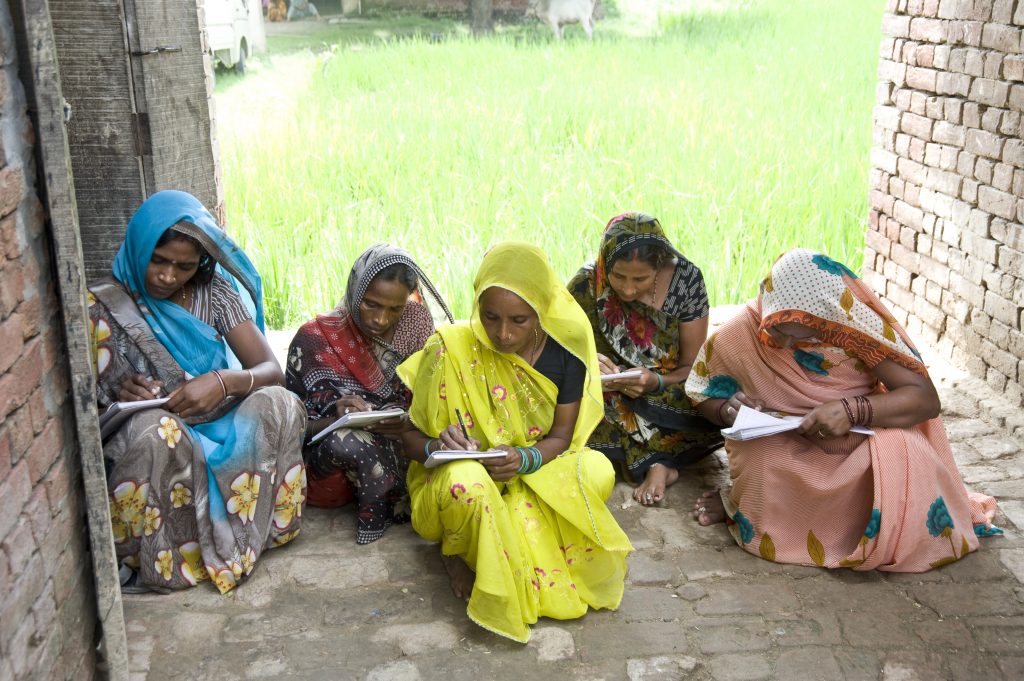As governments implement plans for post-pandemic recovery, the emphasis on getting children back to school risks further marginalizing adult learning and education. Now, more than ever, it is critical that we preserve a comprehensive understanding of the right to education, argues Daniel Baril

As we try, slowly and uncertainly, to emerge from the pandemic, governments are defining the framework for socio-economic recovery. The deconfinement of society, the reopening of businesses, jump-starting economic growth, mass-producing a vaccine and preparing for a possible second wave of infection are all priorities.
Education is on the agenda too, as governments revise and resume school protocols. Restarting formal schooling for children and young people is, without any doubt, urgent. Last month, 275 former world leaders, economists and business leaders stressed the potentially catastrophic consequences of locking children and youth out of learning for any longer, particularly for the most vulnerable among them. Moreover, as economic recovery action plans are implemented, protecting and increasing funding for education will be fundamental in the months and years ahead.
In this emerging post-pandemic political agenda, adult learning and education (ALE) is largely forgotten. In fact, it has been absent from policy since COVID-19 first hit our world. Yet, it is clear that adult education should be prioritized, notably because the development of adult capacities assumes major strategic importance in times of crisis.
Early on in the pandemic, members of the global adult learning and education community expressed concerns over the future of ALE. The Asia South Pacific Association for Basic and Adult Education (ASPBAE) warned that adult education could bear the brunt of budget priorities favouring health financing and the cost of socio-economic recovery, while the European Association for the Education of Adults (EAEA) noted that the impact of this crisis could have dire consequences on the economic viability of several key ALE organizations. DVV International furthermore argued that ALE could face an existential crisis after the pandemic. The UNESCO Special Envoy on Literacy for Development, Princess Laurentien of the Netherlands, has also sounded the alarm about youth and adult illiteracy in the COVID-19 context.
The post-pandemic ‘next normal’ could be a perilous time for ALE. As governments focus on health, economic issues and education for children and young people, adults’ learning needs could be left unanswered. Globally, the field could be weakened and further marginalized.
The recent Global Report on Adult Learning and Education (GRALE 4) illustrated the vulnerabilities of ALE, as shown by insufficient progress in participation, inadequate funding, deep and persistent inequalities and the absence of policy action in the field of liberal, popular and community education, which should be so crucial in matters of health education.
For decades, adult learning and education advocacy strongly supported the extension of the right to education to all adults. Every CONFINTEA’s declaration, from 1949 to 2009, as well as the Recommendation on Adult Learning and Education and Sustainable Development Goal 4, have strengthened the case for every adults’ right to education.
UIL’s important contribution to UNESCO’s Futures of Education initiative, Embracing a culture of lifelong learning, published last week, has further underscored the need to recognize lifelong learning as a human right.
In the post-pandemic world, commitment to the right to education for all, including adults, will be challenged. In that context, it is worth reminding ourselves that protecting, respecting and fulfilling the right to education are baseline obligations for states.
Without a doubt, this transformative time of ours will have a lasting impact. The call to ‘build back better’ invites us not to miss the opportunities brought by the current crisis. A comprehensive understanding of the beneficiaries of the right to education could be at stake.
Daniel Baril is Chair of the Governing Board of the UNESCO Institute for Lifelong Learning and Director General of the Canadian Institute for Cooperation in Adult Education.

During the Covid-19 pandemic we need adult education now more than ever because curbing the spread of the disease depends to a greater extent on the youth and adults of today. Many Covid-19 related issues have arisen such as increased teenage pregnancies, the need for homebased learning among children, child labour, reduced household incomes, among others. These call for adult education intervention to include programmes such as parenting skills, household economic strengthening, training parents to facilitate homebased learning among children and the need for psycho-social support to affected communities. Governments should rise to this challenge.